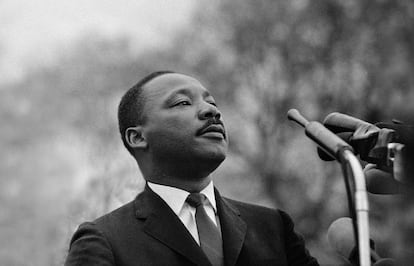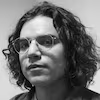Martin Luther King Jr: 55 years after his assassination
Dr. King was leading efforts against poverty, capitalism and the Vietnam War when he was shot, more than half a century ago

On April 4, 1968, Martin Luther King Jr. was shot in Memphis, Tennessee. This year marks the 55th anniversary of his assassination. King, who used nonviolent civil disobedience fighting discrimination in the United States, was 54 years old when he was killed in a violent act that contrasted with his nonviolent ideals. Although his death left a void in the civil rights movement, his message of a more equal society lives on, inspiring people to this day.
He was assassinated by James Earl Ray, a fugitive from Illinois. His family believes that he was killed as part of a conspiracy involving the U.S. government. The FBI investigated King for possible communist ties, spied on his personal life and secretly recorded him. In 1964, the Bureau mailed him a threatening anonymous letter meant to blackmail him and make him take his own life. The official version, however, maintains that Ray was the sole author of the crime.
King participated in and led marches for the right to vote, labor rights for minorities, and desegregation, using nonviolent resistance against Jim Crow laws that enforced racial segregation in the U.S. These laws institutionalized economic, educational, political, and social disadvantages for people of color, especially in the former Confederate States of America, since the 1870s, after the Civil War.
His movement achieved important legislative advances like the Civil Rights Act of 1964, which outlawed discrimination based on race, color, religion, sex and national origin; the Voting Rights Act of 1965, which prohibits racial discrimination in voting; and the Fair Housing Act of 1968, a follow-up to the Civil Rights Act which outlawed discrimination in housing. After those accomplishments, Dr King focused on opposition towards poverty, capitalism and the Vietnam War.
Assassination of Martin Luther King Jr.
On Thursday, April 4, 1968, King was staying in Room 306 at the Lorraine Motel in Memphis. According to Rev Samuel Kyles, one of the witnesses, King was leaning over the balcony in front of the room while speaking with Reverend Jesse Jackson, when he was shot. He was struck in the face by a rifle bullet. King was rushed to St. Joseph’s Hospital, where doctors tried to resuscitate him. He died at 7:05 p.m.
According to witnesses, James Earl Ray, the culprit, was seen fleeing from a rooming house across the street from the Lorraine Motel. The investigation found Ray had been renting a room in the boarding house. Police found a rifle and binoculars. He managed to escape, which led to a manhunt that ended in Ray’s arrest at Heathrow Airport, London, two months after the killing. On March 10, 1969, he pleaded guilty to the first degree murder of the activist, but he later changed his version.
Reactions
After the murder, then-President Lyndon B. Johnson canceled a meeting in Hawaii with Vietnam War military commanders. He assigned Attorney General Ramsey Clark to investigate the assassination. He then made a personal call to Coretta Scott King, King’s widow, and declared April 7 a national day of mourning, with the U.S. flag flying at half-staff.
Senator Robert Kennedy was on the campaign trail for the Democratic presidential nomination in Indiana, and learned about King’s death after he landed in Indianapolis, where he was going to speak in front of a predominantly black audience. His press secretary, Frank Mankiewicz, and his speechwriter Adam Wakinsky drafted notes for him to use, but he refused them. He later delivered the news of King’s death, and gave a speech, considered one of the greatest speeches in American history, that has been credited with preventing riots in Indianapolis.
He said: “For those of you who are Black and are tempted to be filled with hatred and mistrust of the injustice of such an act, against all white people, I would only say that I can also feel in my own heart the same kind of feeling. I had a member of my family killed, but he was killed by a white man.” This was one of the few times the politician talked about his brother’s, John F. Kennedy, death publicly.
Even though King’s colleagues called for a nonviolent response to the assassination, his death started a wave of riots throughout the United States, with the biggest ones taking place in Washington D.C., Baltimore, Chicago and Kansas City. Kennedy spoke against the violence backlash and the next day gave another important speech where he said: “No wrongs have ever been righted by riots and civil disorders. A sniper is only a coward, not a hero, and an uncontrolled, uncontrollable mob is only the voice of madness, not the voice of the people.”
On April 8, Coretta Scott King and her four children led a crowd of around 40,000 people in a silent march through Memphis to honor King but also to support the cause of the city’s sanitation workers who were asking for better working conditions. The next day funeral rites were held in Atlanta, Georgia, his hometown. The service was nationally televised.
Aftermath
The FBI was assigned the lead to investigate King’s death. J. Edgar Hoover, who previously tried to undermine the activist reputation, told President Lyndon Johnson that his agency would find the culprit. Many documents related to the investigation remain classified and are slated to remain secret until 2027.
James Earl Ray confessed to the assassination on March 10, 1969. He took a guilty plea on the advice of his attorney Percy Foreman, to avoid a conviction and potential death penalty. He then was sentenced to 99 years of prison, but three days later he recanted his confession saying that he did not “personally shoot King” but he may have been “partially responsible without knowing it”, suggesting he was involved in a conspiracy.
Ray tried to withdraw his guilty plea and secure a full trial unsuccessfully for the remainder of his life. Dexter, King’s son, supported his efforts to obtain a retrial. Ray’s attorney also tried to gain a trial on behalf of the King family, who believed he was not responsible for the crime.
In 1993, Loyd Jowers claimed on an ABC News program that he was part of a conspiracy to kill Martin Luther King Jr. and that James Earl Ray was not the only person responsible for the murder. Jowers claimed that Frank Liberto, an alleged member of the Mafia, paid him to arrange the assassination and that he hired a killer, but it was not Ray.
In 1999, a Memphis jury found that Jowers was involved in a conspiracy to assassinate King and that the plot to kill him also included governmental agencies and “others.” Dexter King revealed that the family believed Lt. Earl Clark of the Memphis Police Department was the true identity of the assassin, according to Jowers. However, the Department of Justice concluded its investigation into Jowers’ allegations in 2000 and found no evidence to support the conspiracy claims.
The official version still states that James Earl Ray killed Martin Luther King Jr.
Sign up for our weekly newsletter to get more English-language news coverage from EL PAÍS USA Edition
Tu suscripción se está usando en otro dispositivo
¿Quieres añadir otro usuario a tu suscripción?
Si continúas leyendo en este dispositivo, no se podrá leer en el otro.
FlechaTu suscripción se está usando en otro dispositivo y solo puedes acceder a EL PAÍS desde un dispositivo a la vez.
Si quieres compartir tu cuenta, cambia tu suscripción a la modalidad Premium, así podrás añadir otro usuario. Cada uno accederá con su propia cuenta de email, lo que os permitirá personalizar vuestra experiencia en EL PAÍS.
¿Tienes una suscripción de empresa? Accede aquí para contratar más cuentas.
En el caso de no saber quién está usando tu cuenta, te recomendamos cambiar tu contraseña aquí.
Si decides continuar compartiendo tu cuenta, este mensaje se mostrará en tu dispositivo y en el de la otra persona que está usando tu cuenta de forma indefinida, afectando a tu experiencia de lectura. Puedes consultar aquí los términos y condiciones de la suscripción digital.









































